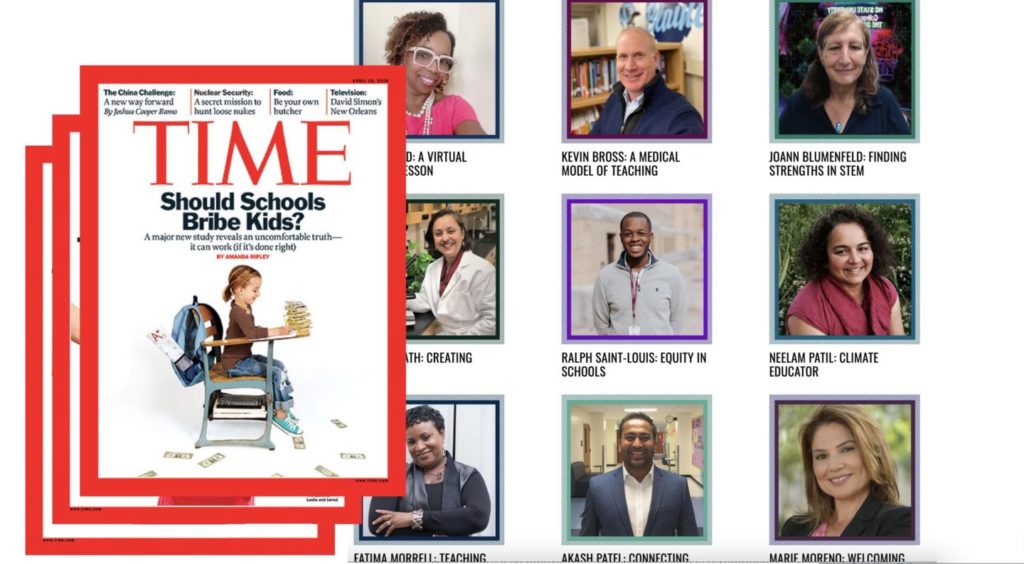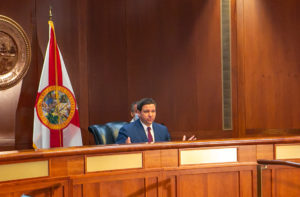TIME Magazine’s “Innovative Teachers 2022” list prizes woke values above all in education
What do some of the nation’s best, “innovative” teachers have in common?
According to TIME Magazine’s editors, these teachers believe and teach the values of anti-racism, social justice,…

What do some of the nation’s best, “innovative” teachers have in common?
According to TIME Magazine’s editors, these teachers believe and teach the values of anti-racism, social justice, gender fluidity and liberal policies on matters such as climate change.
For example, one of the educators on TIME’s top 10 “Innovative Teachers 2022” list, Willow Rosen, is notably not a school teacher, but she does teach sex education in St. Louis-area schools as part of her role as Education and Care Support Specialist on the Transgender Care Team at Planned Parenthood of the St. Louis Region and Southwest Missouri.
TIME begins Rosen’s write-up with a story of how she “connected” in one of her sex ed classes with a 4th or 5th grader who told Rosen she liked her best friend as more than a friend – “something the student’s mom thought she was too young for, but which Rosen understood.”
“It’s these little moments of connection that feel really good,” Rosen is quoted as saying.
So much for the mother’s concerns.
Rosen has been teaching the “gender-expansive and affirming” curriculum in schools around St. Louis for a year, according to the article. What makes it so innovative? “Rosen’s approach is revolutionary in that it exists,” the article says.
So, Rosen made the list simply for teaching gender-fluid, affirming sex ed that does not emphasize abstinence?
Three other teachers are highlighted for their work promoting diversity, equity and “anti-racism,” which advocates for constant introspection of implicit racial bias, identification of systemic racism and admission of white privilege, among other things. A failure to be anti-racist is to “uphold aspects of white supremacy,” according to this line of thinking.
Fatima Morrell, an associate superintendent for culturally and linguistically responsive initiatives for Buffalo Public Schools, is selected in TIME’s list for pushing anti-racist curricula for all students.
“For all our children, we have to unpack white supremacy, as hard as that is to talk about,” Morrell says in the article. “It is important that every single child receives an anti-racist curriculum in the Buffalo public schools, and I’m going to continue to push that.”
But parents and teachers alike have raised concerns about how focusing on race can have a negative effect on students. Some states have even passed laws against such curricula.
Another teacher on the list, Ralph Saint-Louis, is a Massachusetts high school teacher lauded not only for his activism on racial issues, but for going “beyond the traditional syllabus” to engage his students on issues of sexuality in his science classes.
“While it’s common to discuss biological sex, DNA and chromosomes, he also makes it a point to discuss gender identity,” the article reads. “This year, teaching the topic aligned with national pronouns day.”
“So I launched the lesson by talking about pronouns and how people identify to give a clearer understanding of the difference between biological sex and gender identity,” Saint-Louis says in the article.
Rather than his impact teaching his subject – or helping his students improve their understanding or performance in science – he is also highlighted for his work to support policies such as mandatory diversity training and hiring in education.
Also making the list is Neelam Patil, a California elementary school teacher, recognized for her hands-on approach to teaching her students, whom she calls “activists,” about climate change.
“Schoolchildren in Patil’s classes are already expressing climate anxiety,” the article reads. “‘Climate change is happening right in front of us,’ says Evelyn Lloyd, a 4th grader in Patil’s class. ‘I’m not very happy about [climate change]. It’s going to destroy the life on Earth,’ adds Ella Cody, a 10-year-old student at Cragmont Elementary School. ‘We are doing nothing to stop it, and if we don’t stop it in the next 10 years, then the world is done,’ says Kanav Deorah, 9.”
It is a slight relief to encounter three teachers on the list whose impact seems less tied to values or policies that are controversial or have little to do with what many parents value in education.
Kevin Bross, for example, is featured for implementing a new model of instruction similar to how doctors make rounds in a hospital. Rachna Nath helps her students invent solutions to real-world problems and even pitch the ideas to investors. And Akash Patel, a polyglot, helps teach low-income students languages in Dallas.
But in a year when American students are suffering the effects of learning loss from failed pandemic policies, one wonders: Who are the innovative teachers who fought for in-person instruction, who actually improved academic performance and literacy, or worked with – not against – parents to address their educational concerns?



